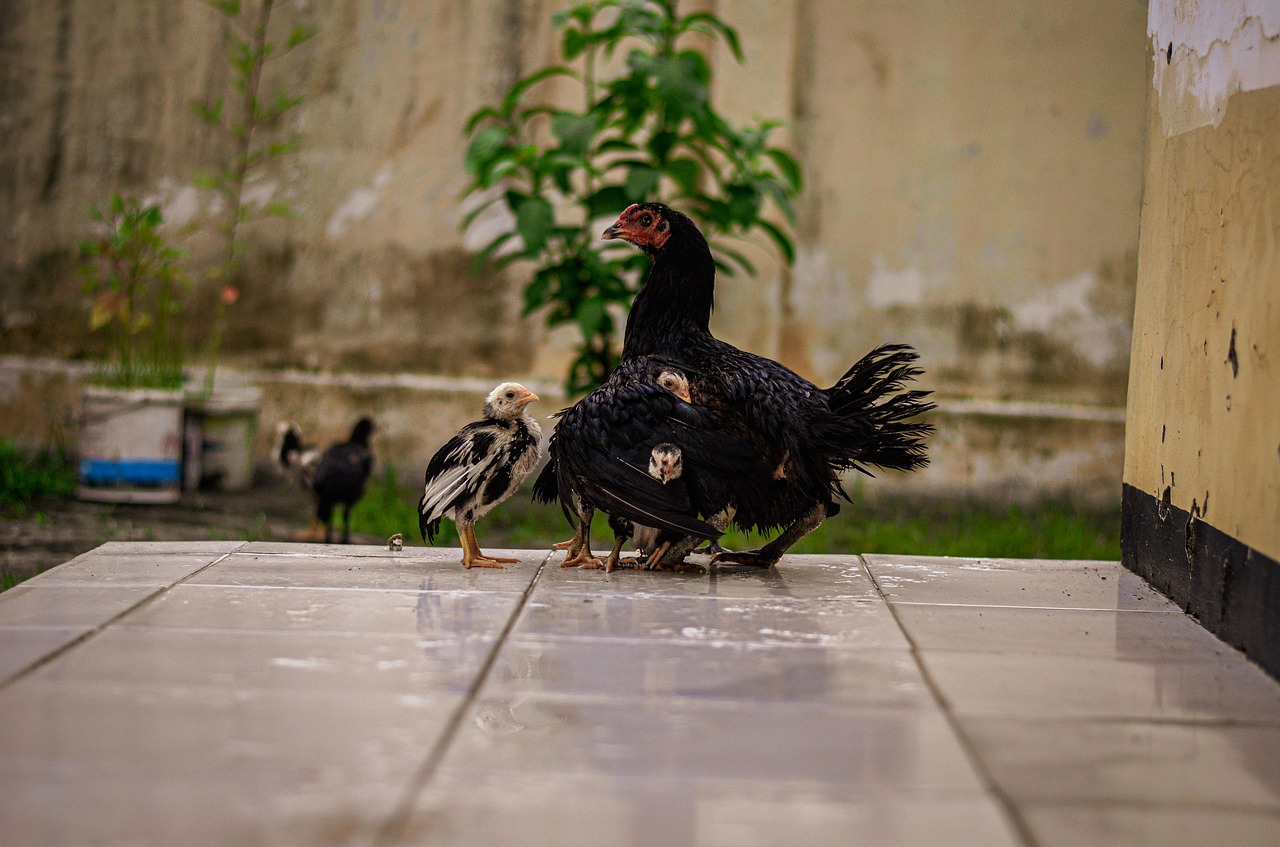A hen’s feathers keep the cold out when the air is dry and still, so they don’t mind the cold. But draughts can get under the feathers, and wet feathers don’t work as well, so keeping hens dry and draught-free is vital.
1. Draughts and Cold
Chickens don’t mind the cold but they do mind draughts and the rain at night so these are a top winter priority for them. The chicken coop, or house, should be tight enough to keep the cold wind from blowing through the walls.
Ventilation should be above head height and there should be no draughts coming through the coop. The waterproofing needs to be checked and any areas that are dripping water into the housing need to be sealed quickly. Wood should be used for roosts and should never be made of metal poles or plastic.
Wood roosts will help to keep your hens feet warm whereas metal or plastic will stay cold all the time and cause their feet to become too cold. Imagine stepping on a sheet of tin with your bare feet in the winter and then having to remain there for hours.
Some sort of litter such as straw should be used inside the coop and around the coop. This will help by keeping the hens feet off the frozen ground while they scratch around during the day. The entrance to the coop will become muddy and frozen if no bedding is put down. This can make the hens reluctant to come out during the day.
Keeping the straw clean is extremely important. Check it daily, rake out and replace when it becomes soiled or wet.
2. Water and Food
Hens need fresh clean water in the winter just as they do in the summer. They will die more quickly from lack of water than lack of food. You may want to give your birds warm water periodically. In cold weather, chickens appreciate water which has been slightly warmed. A rubber dish can be used which will expand when ice forms and will not break like plastic.
Water will freeze more quickly in metal containers. It is very important to check water containers several times a day when temperatures are at their lowest because ice will form on top and chickens may not be able to break it.
Hens need more feed in the winter to keep their body heat up. We give ours a well-balanced pellet feed and scratch grain in the winter to keep them healthy. When the ground is frozen, hens are less able to scratch for the grit they need so we add extra to their food.
Adding vegetable peelings, greens and cooked vegetables also helps. By varying their diet, they receive the protein and calcium needed to raise their body heat which keeps the hens laying more frequently than they would otherwise. (Even so, they lay far fewer eggs than they do in the summer).
Going outside. Hens prefer to be outside even in very cold weather, but can be leery of taking the first steps out of the coop. If snow collects in the chicken yard, shovel it out so they can walk around without sinking in the snow.
3. Foxes and Predators
Shortage of food supply causes an increase in predation during the winter months. The predators try harder.
Losses to predators, such as foxes, are preventable, if you keep your hens in a secure coop and run. During the summer, foxes will try and break into a coop, but won’t put a lot of effort into it – and will stop their attack when startled by the least distraction.
But during winter, when they are hungry and there is not much food available, they’ll try much harder to enter the coop, and won’t be put off by a minor disturbance. Having got into the coop, a fox will kill a couple of chickens to take away … but will then carry on killing, seemingly for sport, the majority of a flock in a single night.
Mink are much rarer but harder to stop. They can fit into small openings and are hard to deter. Like foxes, they usually kill in night-time rampages that seem more for sport than food. The wild mink found in the UK are the descendants of mink which escaped form mink farms 30 years ago.
Domestic dogs can be a problem all year round, but – being fed at home each day – are no worse in the winter. There are many products on the market designed to deter predators.
One of the most effective for night predators is the Sentry, a motion activated LED light that senses predators from a distance and flashes on for a few seconds, often scaring them away permanently.
However they are expensive, and most useful to commercial flocks. For chickens kept in a coop in the garden or back yard, your money is probably better spent on other things.
In winter, taking more care of these three tasks — draught-proofing, watering, and securing your flock from predators – will ensure that you still have a happy, healthy flock when the sun returns.
The Author:
Roy Preece of ‘easyhens’ has kept hens in his back garden for over 5 years. To learn the quickest and easiest way to keep hens and chickens in YOUR garden or back yard go to: easyhens.com
Photo. Dhito 10
Source: Ab
